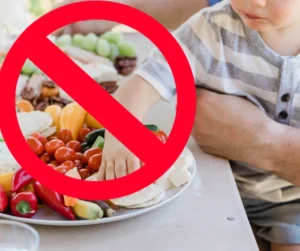
What is safe sleeping?
How to create a safe sleeping environment for your baby, and why it is so important.

We have seen a lot of buzz around melatonin use in kids as of late, with articles describing an ‘explosion’ in melatonin used to help kids sleep.
But what are the risks? Is it safe?
Experts quoted in the ABC article referenced below have noticed an “exponential rise” in children being given melatonin to help them sleep but say parents shouldn’t buy it online. Melatonin is sold cheaply on overseas shopping websites. Doctors are urging parents to be cautious and not use it as a go-to fix for children who have trouble falling asleep.
The Therapeutic Goods Administration (TGA) has approved prescription-only melatonin for use in children between two and 18 with autism spectrum disorder.
The number of pediatric melatonin ingestions in the US (reported to U.S. poison control centers), increased 530% from 8,337 in 2012 to 52,563 in 2021, with the largest yearly increase (37.9%) occurring from 2019 to 2020.
In 2021, pediatric melatonin ingestions accounted for 4.9% of all pediatric ingestions compared with 0.6% in 2012.
Over the course of the study, 4,097 (14.7%) children were hospitalized, and 287 (1.0%) required intensive care.
Five children required mechanical ventilation, and two died.
Both deaths occurred in children aged less than 2 years (3 months and 13 months) and occurred in the home. One ingestion involved intentional medication misuse; the reason for the other is unknown.
Lelak K, Vohra V, Neuman MI, Toce MS, Sethuraman U. Pediatric melatonin ingestions – United States, 2012–2021 (2022) Centers for Disease Control and Prevention. Available at: https://www.cdc.gov/mmwr/volumes/71/wr/mm7122a1.htm?s_cid=mm7122a1_w&fbclid=IwAR0PyO2MH6cczjSKpooE4ZbaqhpB8uyhn3oMzEewH2KQORf8xTngwJyo3lw#suggestedcitation (Accessed: 17 July 2023).
As mentioned, this study is from the US (there is not yet an Australian equivalent). We have posted about this topic before as it is one of the questions we receive. Questions we have received include people asking whether it is safe to buy and give to children without medical advice. It is important to always speak to your doctor or paediatrician before giving your child melatonin.
Paediatrician and group head of health services at the Murdoch Children’s Research Institute Harriet Hiscock spoke to ABC, stating that she will prescribe melatonin, but not as a first choice.
“These are typically children who have underlying developmental problems, for autism in particular. [The parents] have tried behavioural sort of approaches and they haven’t worked,”
“It’s not great to use it where you haven’t gone through a health professional to have a discussion to try other things which don’t involve melatonin.”
Erland LA, Saxena PK. Melatonin Natural Health Products and Supplements: Presence of Serotonin and Significant Variability of Melatonin Content. J Clin Sleep Med. 2017 Feb 15;13(2):275-281. doi: 10.5664/jcsm.6462. PMID: 27855744; PMCID: PMC5263083
Melatonin is widely available in tablet, capsule, liquid, and gummy formulations. Although in Australia you need a prescription, there have been reports of people purchasing online or using their own melatonin (prescribed for themself).
It is also important to note that there is considerable variability in melatonin content across products and discrepancies with label claims. This adds to how unsafe it is to administer to children without medical advice. A 2017 report in the Journal of Clinical Sleep Medicine found the dose of melatonin in products sold online varied as much as 465 percent.
It is also worth noting that there is no long-term data on the side effects of melatonin use in little ones.
In this study, some of the ingestions were reported as accidental. If you have melatonin in your home, it is vital that you treat it like any medicine. Make sure that it is locked away and out of reach of little ones.
If you are concerned about your child’s sleep for any reason, speak to your GP or paediatrician for further advice.
References
Lelak K, Vohra V, Neuman MI, Toce MS, Sethuraman U. Pediatric melatonin ingestions – United States, 2012–2021 (2022) Centers for Disease Control and Prevention. Available at: https://www.cdc.gov/mmwr/volumes/71/wr/mm7122a1.htm?s_cid=mm7122a1_w&fbclid=IwAR0PyO2MH6cczjSKpooE4ZbaqhpB8uyhn3oMzEewH2KQORf8xTngwJyo3lw#suggestedcitation (Accessed: 17 July 2023).
Erland LA, Saxena PK. Melatonin Natural Health Products and Supplements: Presence of Serotonin and Significant Variability of Melatonin Content. J Clin Sleep Med. 2017 Feb 15;13(2):275-281. doi: 10.5664/jcsm.6462. PMID: 27855744; PMCID: PMC5263083
Owens, J., Simakajornboon, N., Kotagal, S., & Gringras, P. (2025). Melatonin use in typically developing (TD) children: International Pediatric Sleep Association (IPSA) expert consensus recommendations for healthcare providers. Sleep Medicine, 128, 127–129. https://doi.org/10.1016/j.sleep.2025.02.002
Sleep Health Foundation. (2025, June 12). Melatonin and children [Fact sheet].
https://www.sleephealthfoundation.org.au/sleep-disorders/melatonin-and-children
Further Reading
Howells, S. and Jacques, O. (2021) Pills should not be the go-to option for kids’ sleeping issues, doctors say, ABC News. Available at: https://www.abc.net.au/news/2021-10-14/parents-warned-against-giving-melatonin-to-kids-/100535642?fbclid=IwAR0Ye-zoHLGAhZUiAVj-_oOSs_5wxbLrSy8QmWHqQ_P6TfkSng456hjSAjU (Accessed: 17 July 2023).

How to create a safe sleeping environment for your baby, and why it is so important.

We often get asked by concerned parents/carers, what they can send to daycare/playgroup etc. when they have seen little ones served up popcorn/grapes and may not have the confidence to speak up, or are worried that their voice hasn’t been heard when expressing these concerns.

It is one of the most common questions when you have a little one sick at home.